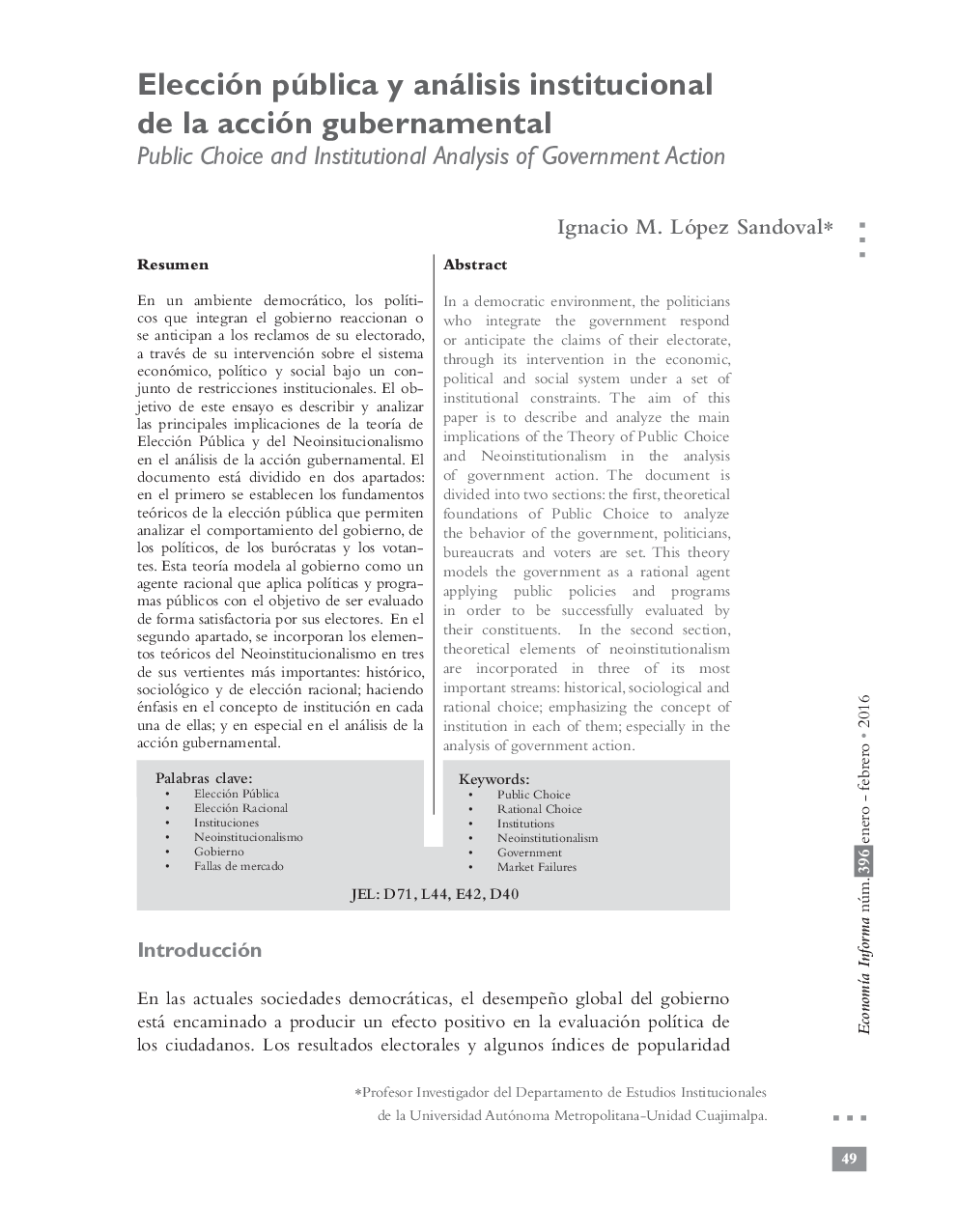| Article ID | Journal | Published Year | Pages | File Type |
|---|---|---|---|---|
| 7345079 | Economía Informa | 2016 | 18 Pages |
Abstract
In a democratic environment, the politicians who integrate the government respond or anticipate the claims of their electorate, through its intervention in the economic, political and social system under a set of institutional constraints. The aim of this paper is to describe and analyze the main implications of the Theory of Public Choice and Neoinstitutionalism in the analysis of government action. The document is divided into two sections: the first, theoretical foundations of Public Choice to analyze the behavior of the government, politicians, bureaucrats and voters are set. This theory models the government as a rational agent applying public policies and programs in order to be successfully evaluated by their constituents. In the second section, theoretical elements of neoinstitutionalism are incorporated in three of its most important streams: historical, sociological and rational choice; emphasizing the concept of institution in each of them; especially in the analysis of government action.
Keywords
Related Topics
Social Sciences and Humanities
Economics, Econometrics and Finance
Economics and Econometrics
Authors
Ignacio M. López Sandoval,
